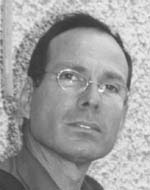Lahav, Tzvi
Ben Franka and Chaim. He was born on February 14, 1952 in Haifa. He grew up in Kiryat Haim and studied at the Achdut elementary school. In 1968, his family moved to Holon, where Zvika studied at Kugel High School. In August 1971, Zvika joined the IDF in the academic reserve program, and began his studies at Tel Aviv University in the Geodesy Department (a science that deals with the shape and dimensions of the earth and determining the precise location of geographic points) and cartography. In 1974, Zvika began his career as an officer in the Mapping Unit, despite the location of the unit in Tel Aviv, where his service was characterized by his preoccupation with the country’s borders and borders: at the beginning of his service he participated in marking the separation lines in Sinai and the implementation of the Interim Agreements He carried out mapping and measurement work in Lebanese territory as part of Operation Defensive Shield In 1992, was responsible for conducting measurements at the Israel-Egypt border and for documenting the border, while at the time of peace negotiations between Israel and Jordan he was a member of the joint technical committee that was established and was a senior partner in marking, establishing, measuring and documenting the international border between the two countries. Zvika received the rank of lieutenant colonel and was appointed head of the geodesy department in the mapping unit. In this role he was the professional instructor in the field of geodesy and field measurements in the IDF, and was responsible for consultation, guidance, research, infrastructure management, manufacture of accessories and carrying out various tasks for consumers from within the defense establishment. The measurement theory from satellites in the IDF, and brought the mapping unit to technological achievements on an international scale. During his service, Zvika participated in development committees, steering committees and various expert committees in the IDF, and was highly regarded by many elements in the defense establishment for his unique contribution to the advancement of projects and the development of weapons. Among other things, he received a medal from the head of Military Intelligence for creative thinking. During 1999, he was further recognized for the importance of his contribution in assessing his role as a vital knowledge center. Zvika took part in the support of the political agreements with Egypt and Jordan, received professional appreciation from senior professional officers in the armies of Egypt and Jordan, and even gained their personal trust to the point of warm reciprocal relations. It was not for nothing that the Jordanian delegation, which had come especially to accompany him on his last journey, honored him. Zvika’s illness from the moment it was discovered was short – only ten months. During his illness Zvika was discovered in all his greatness: a great man, a great warrior and a noble soul. Even though he was aware of the gravity of his condition, he decided to fight the disease with expressions of heroism and unremitting fortitude. Zvika was a special person who knew how to support his friends and family and to encourage them with a smile on his lips. He always expressed humor, even in the most difficult moments of the disease and dealing with it. Until his last moments he looked directly at death and confronted the knowledge that his life had come to an end without looking down. Zvika fell in the course of his duties on the 11th of Elul 5759 (August 23, 1999) and he is forty-seven. He was laid to rest in the Kiryat Shaul military cemetery. Survived by Raya – Lili, son and daughter – Omer and Neta, parents and brother – Shuki. His wife eulogized him: “Zvika was a sensitive person, pleasant and kind, and he always tried to solve problems in a good spirit and in an atmosphere of peace … Zvika loved people and always tried to contribute and be helpful. He had a great deal of mental strength to smile and laugh with us in the shadow of death;These alleviated our suffering, mine and those of my children. Dear man, We shall never be missed, May his memory be blessed. “
